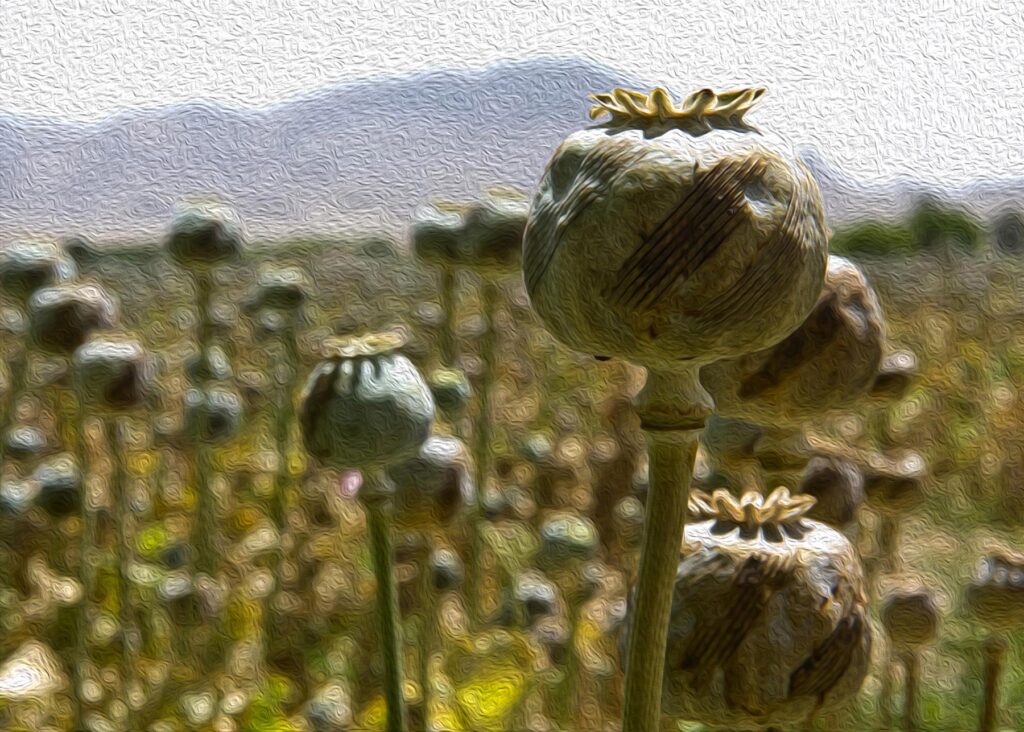The production of opium has been illegal in Thailand since 1959, and with concerted attempts by the government to eliminate it, the size of the crop has been reduced by eighty percent in the last decade, to around twenty tons per year. Opium nevertheless remains an important cash crop of the Hmong, Yao, Lahu and Lisu hill tribes, and Thailand has now become an important conduit for opium from Burma and Laos, where production stands at 2500 tons per year and is still rising.

For the hill fanners, the attractions of the opium poppy are difficult to resist. It’s an easy crop to grow, even on almost barren land; it’s a highly productive plant, with each flower pod being tapped several times for its sap; and it yields a high value for a small volume – around B500 per kilo at source. Refined into heroin and transported to the US – the world’s biggest market – the value of the powder is as much as 10,000 times greater.
The small-scale heroin refineries in the lawless region on the borders of Thailand. Burma and Laos have become so successful that the area has earned the nickname the “Golden Triangle”. Two “armies” operate most of the trade within this area. The Shan United Army, which is fighting the Burmese government for an independent state for the Shan people, funds its weapons and manpower from the production of heroin. Led by the notorious warlord Khun Sa, the Shan United Army attempted to extend their influence inside Thailand during the 1960s, where they came up against the Kuomintang (KMT). These refugees from China, who fled after the communist takeover there, were at first befriended by the Thai and Western governments, who were pleased to have a fiercely anticommunist force patrolling this border area. The Kuomintang were thus able to develop the heroin trade, while the authorities turned a blind eye.
The Kuomintang and Shan Armies were once powerful enough to operate unhindered. In the last ten years, though, the danger of communist incursion into Thailand has largely disappeared, and the government has been able to concentrate on the elimination of the crop. In 1983 the Shan United Army were pushed out of their stronghold at Ban Hin Taek near Mae Salong, and over the border into Burma, and the Kuomintang in the surrounding area have been put on a determined “pacification” programme. With the destruction of huge areas of poppy fields, it has been necessary for the Thai government to give the hill tribes an alternative livelihood through the introduction of more legitimate cash crops. Yet opium cultivation continues in remote valleys, hidden from the Thai authorities, and opium abuse among the hill tribes themselves is if anything getting worse: over thirty percent of Hmong men, for example are addicted.